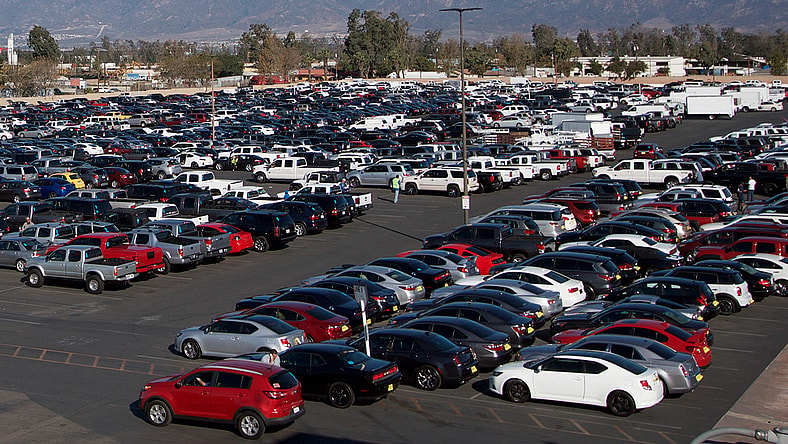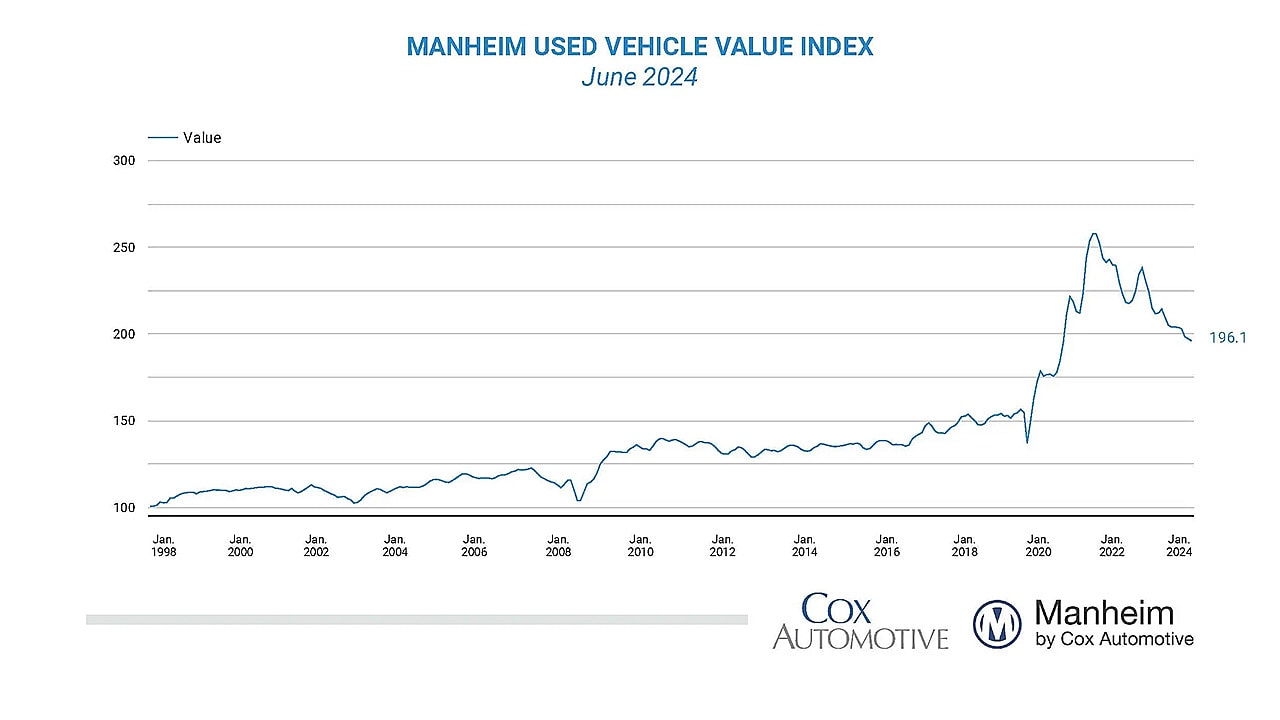Used Car Values Are Down 8.9% Since 2023 With EVs Leading The Way

Used vehicle prices continue to decline from their highs of 2021, but a new report suggests they may soon hit the bottom.
The June Manheim Used Vehicle Value Index (MUVVI) report shows that the index is down 8.9% over the past year to 196.1.
The index tracks wholesale vehicle values, which typically lag retail prices by several weeks. It uses January 1997 as a baseline of 100 and was at 257.7 in December of 2021 and January 2022, during the height of the semiconductor shortage and COVID 19-related supply chain issues that drastically reduced new automobile production and inventories The past two months saw drops of just 0.6%, indicating pricing may be leveling out as production has normalized. Used vehicle retail list prices dropped 1% during the month.
“Wholesale value declines have been stronger than we normally see for much of the last two months,” Jeremy Robb, senior director of Economic and Industry Insights at Manheim’s owner Cox Automotive said in a press release on the report.
THESE 4 AMERICAN VEHICLES HOLD THEIR VALUE THE BEST

“However, even though much of the industry was feeling the retail sales disruptions caused by the CDK outages in the latter part of the month, Manheim started to see wholesale price declines decelerate, ending the month at a seasonally normal pace. Sales conversion is currently running several points above the previous three years, including 2021, indicating that buyer demand is relatively strong despite all the uncertainty in the market.”
Pickup prices have been the most resilient over the past year, dropping an average of 8.3%, while electric vehicles have seen the steepest decline at 16.6%.
WHICH STATES BUY THE MOST USED AMERICAN CARS?
“We think the decline may be nearing its floor, which should help stabilize the market through the summer months and rebound in the back half of the year,” Cox Automotive Chief Economist Jonathan Smoke said.
